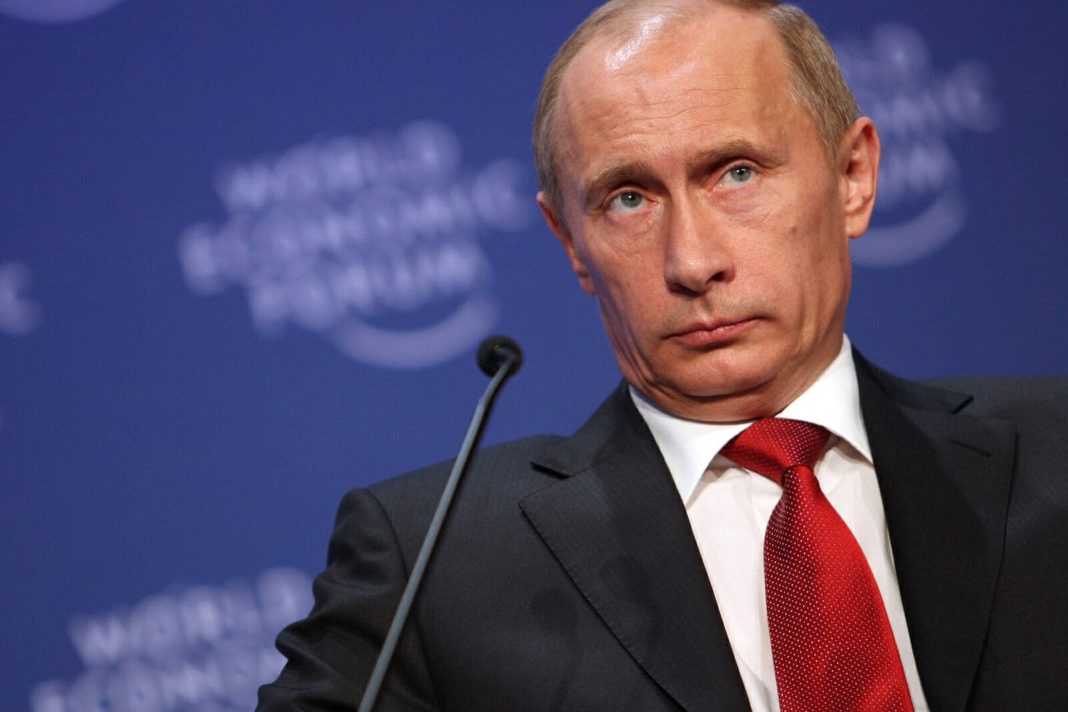MOSCOW, Russia — The Kremlin has responded sharply to US President Donald Trump’s condemnation of Russian President Vladimir Putin, describing the remarks as evidence of “emotional overload” amid heightened international tensions following Moscow’s most extensive aerial assault on Ukraine since the war began.
In a post on Truth Social late Sunday, May 25, 2025, Trump accused Putin of having “gone absolutely crazy” following Russia’s launch of 367 drones and missiles that killed at least 13 civilians across Ukraine.
“Needlessly killing a lot of people,” Trump wrote, adding, “something has happened to him.”
Reacting on Monday, May 26, 2025, Kremlin spokesperson Dmitry Peskov dismissed the statement, saying it was “connected to an emotional overload of everyone involved” and declined to elaborate further.
The remarks come as Russian forces ramp up aerial strikes across Ukraine.
Between Sunday evening and Monday morning alone, Ukraine’s air force reported intercepting the majority of 355 drones launched in what it described as the largest drone-only assault of the conflict to date.
Another 10 people were reportedly killed during the latest overnight strikes.
Ukraine’s President Volodymyr Zelenskyy condemned the bombardment, saying the attacks serve “no military purpose” and reflect “an obvious political choice… by Putin… to continue the war and destroy lives.”
Moscow defended the escalation as retaliation for Ukrainian strikes on Russia’s “social infrastructure,” according to Peskov.
Russia’s Ministry of Defence also claimed its forces shot down 20 Ukrainian drones targeting various regions within Russian territory.
As pressure mounts on Kyiv and its allies, Germany’s Chancellor Friedrich Merz said on Sunday, May 25, 2025, that Ukraine is now free to strike targets inside Russia using Western-supplied weapons — a shift in policy that could open the door to the long-debated delivery of German Taurus cruise missiles.
“This means that Ukraine can now defend itself, for example, by attacking military positions in Russia,” Merz told local media.
The German Chancellery has not confirmed whether a formal decision on Taurus missiles is imminent.
The UK and the US previously granted conditional approval for Ukraine to use long-range weapons in self-defence.
The Taurus, with a range of about 500 kilometres, would significantly increase Kyiv’s reach. Russia has described any supply of the missile as “a dangerous move.”
Despite his sharp rebuke of the Kremlin’s latest actions, President Trump acknowledged his long-standing relationship with Putin, saying during a Sunday campaign appearance in New Jersey: “I’ve known him a long time, always gotten along with him, but he’s sending rockets into cities and killing people, and I don’t like it at all.”
He also hinted at the possibility of ramping up sanctions against Moscow — a measure he has floated on multiple occasions in recent months.
Shortly after his public criticism, Trump also lashed out at Ukraine’s leader, saying Zelenskyy’s rhetoric “causes problems.”
In his Truth Social post, he wrote: “Everything out of his mouth causes problems, I don’t like it, and it better stop.”
Tensions between the US and Ukraine come as Washington continues to navigate sensitive ceasefire talks.
Peskov confirmed that Trump and Putin held a two-hour call last week, during which both sides reportedly discussed a potential US-brokered ceasefire deal.
While Trump has expressed optimism, saying the discussions “went very well,” Ukraine has so far only agreed to a provisional 30-day ceasefire, with Russia stopping short of full endorsement — instead proposing a vague “memorandum on possible future peace.”
The talks in Istanbul on May 16 marked the first direct negotiations between Russian and Ukrainian representatives since early 2022.
However, apart from last week’s large-scale prisoner exchange, little concrete progress has emerged.
Russia continues to control roughly 20% of Ukrainian territory, including Crimea, which it annexed in 2014.
The prospect of a ceasefire remains uncertain amid sustained hostilities, conflicting diplomatic signals, and intensifying pressure on the battlefield.







